#author tips
Text
Writing rule:
Every character who speaks gets their own paragraph. If two characters are talking, each time they switch you must create a new paragraph.
Do not add more than one characters’s dialogue into a single paragraph or it will be too confusing for the reader.
#writing advice#writing tips#author advice#author tips#writing#writeblr#authors#books#writblr#author#aspiring writer#fiction writing#novel writing#creative writing#authors supporting authors#author blog#writing blog#stories#writerscorner#writing help#writing rules#wattpad author#ao3#wattpad#ao3 writer#wattpad writer#writer blog
5K notes
·
View notes
Text
Blog Posts Masterlist
Here are all the blogs I've written sorted according to six categories and a lot of sub categories.
Post Writing (Publishing):
Querying/Getting Published
How To Get Published As A Minor—A Step-By-Step Guide
How To Get Out Of The Slush Pile And Make Your Agent Say Yes
How To Answer Some Common Literary Agent Questions
The Rejection Checklist: Manuscript Pitfalls to Avoid
Editing
Everything You Need To Know Before Editing Your Manuscript
How To Eliminate Passive Voice From Your Manuscript
Pre Writing:
WIP building
Ten Dos And Don'ts Of Worldbuilding
How To Name Your Characters
A Step-by-Step Guide to Crafting a Compelling Storyline
How to Pick The Perfect Weapon For Your Characters
Writing tools
How To Hook Your Readers With Your Chapter's Starting And Ending
How To Write And Create A Sub Plot
How To Immerse Your Readers With Indirect Characterisation
First or Third Person? How To Choose The Right POV for Your Story
Genre-Based Advice:
Fantasy
How To Build A Realistic Magic System
Things To Consider When Writing With Mythologies
Tips To Consider When Writing A Fantasy Religious Story
Horror/Thriller
How To Get Away With Murder...As An Author
How To Get Away With Murder Part Two: Writing Murder Mysteries
How To Build Tension And Make Your Readers Feel Scared
Romance
Crafting Asexual Romance: Navigating Emotional Intimacy in Fiction
Character-Based Advice:
How To Write An Antagonist
How To Create Realistic Book Characters
How To Write A Compelling Character Arc
How To Create A Morally Grey Character
How To Write A Plot Device Character
How To Develop A Memorable Antagonist
Writing Believable Teenage Characters: Dos and Don'ts
Crafting Character Voices And Distinct Dialogue
Crafting Authentic Child Characters: From Toddlers to Tweens
How To Create And Execute Unreliable Narrators
How To Write Immortal Characters in Fiction
Creatures/Monsters
How To Write Mythical Creatures Without Sounding Redundant
How To Write Vampires With An Original Twist
'Sensitive' character topics:
How To Write POC Characters Without Seeming Racist
How To Write A Disabled Character: Ten Dos And Don'ts
How To Write And Research Mental Illnesses
Resources And Advice For Writing Abusive Parents
Scene-Based Advice:
How To Build Tension And Make Your Readers Feel Scared
Four Tips On How To Make Your Plot Twist Work
How To Set The Scene Without Info Dumping
Writing A Creepy Setting: Tips And Examples
The Dos and Don'ts of Writing Flashbacks in Fiction
Crafting Realistic Car Accidents in Fiction: A Writer's Guide
Writing Rage: How To Make Your Characters Seem Angry
Crafting Sad Scenes: Writing Tears and Emotional Depth
Fights, poison, pain
How To Accurately Describe Pain In Writing
How To Create A Well-Written Fight Scene
The Ultimate Guide To Writing Persuasive Arguments
Forgining Epic Battles: Techniques For Writing Gripping War Scenes
The Writer's Guide to Authentic Wounds and Fatalities
Ink And Venom: A Writer’s Guide To Poisonous Prose
Everything You Need To Know About Writing Stab Wounds
Everything You Need to Know About Writing Burns
Everything You Need To Know About Writing Gunshot Wounds
Everything You Need To Know About Writing Bruises
Recommendations:
Websites And Writing Apps Every Author Needs in 2023
Seven Blogs You Need To Read As An Author
Ten Websites Every Author Should Know In 2024
Series
Writing Wounds
Writing Mythical Creatures With A Unique Twist
Writing Emotions
#writing community#creative writing#writing blog#writing#writing tools#writing advice#writing help#writing tips#writing resources#writer things#author tumblr#author tips#author advice#author community#author update#haya's book blog#haya: navi#hayatheauthor#haya sameer#book blog
1K notes
·
View notes
Text
A few words to describe Voices
Angelic (Light, soft, calm and considered very beautiful.)
Breathy (Speaking with a lot of audible breathing.)
Brittle (About to cry.)
Croaky (Sounds as if the one speaking has a sore throat.)
Dead (Showing absolutely no emotions.)
Flat (No tone, or in other words, not going up and down.)
Grating (Laughing, but in an annoying/unpleasant way.)
Honeyed (Nice sounding, but untrustworthy.)
Husky (Deep and hoarse in a positive sense.)
Low (Either used to describe quiet or deep voice.)
Monotonous (Boring and unpleasant voice. Changes neither tone, volume nor speed.)
Nasal (Speaking “through the nose”.)
Orotund (Loud and clear.)
Ringing (The same as orotund, loud and clear.)
Rough (Not soft, rasp/hoarse but usually in an unpleasant way compared to husky.)
Shrill (Very high, loud and unpleasant.)
Singsong (Rhythmic, melodic.)
Smoky (Rasp, usually used for a sexy and mysterious sounding voice.)
Thin (Very high, to an uncomfortable degree.)
Throaty (Deep voice and speaking “from the back of your throat” as the word says.)
Wheezy (Speaking while having trouble to breath.)
Wobbly (Nervous, frightened, not confident or about to cry.)
#writing advice#writing#writers resources#writing resources#voice#voice writing#writeblr#writing inspiration#writing exercise#authors resources#author tips#alternative words#describing#reference#writerslife
3K notes
·
View notes
Text
Random writing tip that works strangely well #2
Have writer's block but still feel the urge to write something?
Then go back to stuff you've written before and do some editing <-- preferably the sort where you add/remove parts of sentences and make the whole thing read and feel nicer (rather than grammatical errors)
If you write digitally, I recommend printing off your WIP and handwriting the edits on top.

Don't go overboard with this though! I used to spent every writing session editing my previous work first, and I got so obsessed with making it perfect that it all started to sound stunted. Have fun with it!
And as always - the best writing methods are the ones that work for you, take what you need, modify it for your wip, or make something up on your own. There's no need to take advice as the end all be all!
#writeblr#writing community#creative writing#the writeblr library#writers of tumblr#writers on tumblr#writerscommunity#writing#writers and poets#books & libraries#on writing#random writing tips#writing advice#author tips#writer#book writing#authors of tumblr#writing help#writing resources#writer stuff#writing tips#random writing tips that work strangely well#the writeblr library's writing tips#RWTTWSW#RWTTWSW (2)
121 notes
·
View notes
Text
Overcoming Writer's Block
Overcoming Writer's Block: Strategies and Inspiration from Fellow Authors
Writer's block is the dreaded nemesis of authors, a seemingly insurmountable barrier that can strike at any stage of the creative process. It's the moments when inspiration feels elusive, words refuse to flow, and the blank page taunts you. Every writer, from beginners to seasoned professionals, has experienced it. But the good news is that it's not an unbeatable foe. In this blog, we'll explore strategies and find inspiration from fellow authors to overcome writer's block and reignite your creative spark.

Understanding Writer's Block
Writer's block is often misunderstood as a singular, monolithic entity. In reality, it comes in various forms and can be triggered by different factors. Some common manifestations of writer's block include:
1. Blank Page Syndrome: You sit down to write, but the blank page stares back at you, devoid of words or ideas.
2. Self-Doubt: Insecurities about your writing abilities can paralyze your creativity. You second-guess every word you put on paper.
3. Stagnation: You feel stuck in your story, unable to progress or find a way forward.
4. Lack of Ideas: You may have a concept or outline, but the well of ideas has run dry, leaving you without a clear direction.
5. Perfectionism: The quest for perfection in your writing can lead to an overwhelming fear of making mistakes, stifling your progress. Here are few tips on How To Overcome The Fear Of Rejection As A Writer
Strategies to Overcome Writer's Block
1. Start Writing, Any Writing: The most important step to overcome writer's block is to write. Anything. It could be a journal entry, a random thought, or a few lines of unrelated text. The act of writing, regardless of the content, can help break the mental barriers.
2. Set Realistic Goals: Instead of aiming to write a thousand words in one sitting, set achievable, smaller goals. Tell yourself you'll write for 15 minutes or just one paragraph. The sense of accomplishment when you meet these goals can motivate you to continue.
3. Change Your Writing Environment: Sometimes, a change in scenery can do wonders. If you usually write at your desk, try writing outdoors, in a café, or even in a different room. New surroundings can stimulate creativity.
4. Writing Prompts: Writing prompts are a fantastic way to jumpstart your creative thinking. They provide a topic or a starting point to get your creative juices flowing. Many websites and books offer an array of writing prompts to choose from.
5. Exercise and Mindfulness: Physical activity and mindfulness practices, such as meditation or yoga, can help clear your mind and reduce stress. A fresh, relaxed mind is more likely to overcome writer's block.
6. Read and Research: Sometimes, reading a book, article, or research related to your topic can reignite your passion and ideas. It exposes you to new perspectives and can provide the spark you need to continue writing. Few more tips on becoming Productive Writer
Inspiration from Fellow Authors
One of the most reassuring aspects of writer's block is that you're not alone. Fellow authors have been there, struggled through it, and emerged victorious. Let's take inspiration from their experiences and advice:
1. Margaret Atwood: The renowned author of "The Handmaid's Tale" suggests that writer's block often stems from a lack of motivation, which can be solved by setting and meeting small, manageable goals. She says, "If I waited for perfection, I would never write a word."
2. J.K. Rowling: The creator of the "Harry Potter" series acknowledges that writer's block is a common issue even for prolific authors. She advises writers to avoid self-criticism during the first draft and just get the words on paper.
3. Ernest Hemingway: Hemingway believed in stopping at a point where you still know what will happen next in your writing, so you can easily pick up where you left off. This tactic can prevent the feeling of stagnation and fear of the unknown.
4. Stephen King: The author of numerous bestsellers advocates for consistency. He says, "Amateurs sit and wait for inspiration; the rest of us just get up and go to work." Establishing a daily writing routine can be a powerful weapon against writer's block.
5. Maya Angelou: The late poet and author emphasized the importance of showing up to write regularly. She advised, "What I try to do is write. I may write for two weeks 'the cat sat on the mat, that is that, not a rat,' ... I must write it down."
Seek Support from Writing Communities
If you're still battling writer's block despite trying various strategies, consider reaching out to writing communities. Fellow authors can provide encouragement, feedback, and inspiration. Joining writing groups, participating in writing challenges, or attending workshops can connect you with like-minded individuals who understand your struggles.
Moreover, sharing your experiences with fellow authors can be liberating. It reminds you that writer's block is a common affliction and not a testament to your abilities. It's a temporary roadblock, not an insurmountable obstacle.
In Conclusion
Writer's block is a formidable adversary, but it can be defeated with determination and the right strategies. Understanding its different forms, setting realistic goals, changing your writing environment, using prompts, and practicing mindfulness are effective tactics to overcome it.
Draw inspiration from accomplished authors who have faced writer's block and emerged victorious. Their experiences and advice can serve as beacons of hope during your own writing struggles.
Remember, writing communities are there to support you. Sharing your challenges and triumphs with fellow authors can provide the motivation and encouragement needed to break through writer's block and continue on your creative journey. Writer's block is not the end of your story; it's just one more obstacle to overcome on your path to becoming a successful writer.
91 notes
·
View notes
Text
HOW TO WRITE FANFICTION
1) Pick a Hozier song that you like
2) Pick any fictional character(s) that the song makes you think of
3) BIG BANG THAT SHIT AND COMBINE THEM
4) Proofread
#hey guys guess what I’m doing#don’t look at me rn I’m going through it#marie rants#writing tips#writing#fanfic#author tips#fanfiction tips#writers
130 notes
·
View notes
Note
Ur genuinely one of the best fanfic writers I've ever had the fortune to come across. So i have a question for you, do you have any tips on writing in general? How do you decide what should be sfw and what should be NSFW?
Sorry if it's a weird question, I've gotta pick ur brain about it tho
to answer your question on how i decide what’s sfw or nsfw: tbh, it depends. sometimes i sit down to write something perfectly wholesome and it winds up horny. sometimes i sit down to write something filthy and it gets soft halfway through. sometimes it really rides the line between smut and fluff. it just depends on wherever my idea takes me. i consider anything more than kissing OR anything with saucy dialogue should be tagged with nsfw just to be safe, but this is subjective!
for general writing tips (honestly, i’m tired af rn so i’ll probably come back tomorrow to reblog this with more tips but here’s some i think are very helpful for both sfw and nsfw fic writing):
a lot of times authors (including myself) get stuck writing repetitive or mundane scenes. especially when i write smut bc really sex is just the same thing over and over and over again, sometimes at varying speeds, but still.
if you’re stuck on where to go in a scene, remember to not only describe what the characters are doing; describe how they feel, what they’re thinking, what they’re considering doing. remember to describe the internal point of view as well.
how does this character feel towards the other character? has this changed? if so, why, and how do they feel about it?
how do they feel about whatever action they’re doing with the other character? how does the other character make them feel?
do these characters know each other well? do they notice mundane details about each other? if so, include it.
if a character is thinking, feeling, or doing anything, it can be included.
think very hard about how YOU are imagining this scene. you probably forget to mention a detail or two, like a character looking around or running their hands over marks on a table or absentmindedly kicking at the ground.
every minor detail is important to the atmosphere of a scene. adding or omitting certain things can completely change the way a scene feels
also, be very intentional about word choice. why use “angry” when you can use “furious?” why use “break” when you can use “shatter?” why use “yell” when you could use “shriek?” think hard about that sort of thing, it makes all the difference.
and, last one for now: remember to describe emotions physically. do not just say that a character is angry; describe their brows furrowing, hands balling into fists, or their eyes clouding with fury. do not just say a character is sad; describe the tears they are trying to hold back, the quiver in their voice, or the shake in their hands.
i hope this helps, and any authors who are reading this please feel free to reblog! i’m always here to help:)
and also sorry for any typos it is 1:30 am
60 notes
·
View notes
Text
Writing Tips!
1. Write anything and everything
Just write, it doesn’t matter what you write, it doesn’t have to be super creative. Write about your day, write about a commercial you thought was weird, write about a dream you had. Write an idea for a book, describe a random character. Just write. It doesn’t feel like it helps, but ever since I’ve started journaling the amount of writing I’ve done on my WIPs has doubled, at least. I find it easier to write a WIP when I’ve already been writing something else for a bit. It gets the gears turning. It’s like stretching before a workout. So just write, anything and everything you can.
2. If you get stuck, try, try again
Sometimes I write myself into a corner, and I don’t really know where to go. When I do that, I take a few steps back, I go back a few paragraphs and start writing again, trying out something new. If I get stuck while planning something, I’ll plan out multiple variations of the story, and see which one I like best. If you find yourself stuck, don’t be scared to go back and try again.
3. Skip things, if you need to
If you get stuck on a certain part, skip over it and go to the next part you want to write. Write the parts that you know, and then go back and fill in the gaps. The gaps seem a lot less intimidating when you know where you’re trying to get to.
4. Write what you want to read
“But then I’ll just be writing this same trope 10 times over!” So what? What’s the issue with that? You want to write 10 variations of the same trope, so I’m sure there’s someone out there who wants to read 10 variations of the same trope. Have you seen how many Enemies to Lovers fics there are?? Also, it’s your writing. Do what you want.
5. Don’t feel pressured to publish
If you don’t want to put your work out there, don’t. There’s no publishing requirement to being a writer.
6. WIPs can stay WIPs
You don’t need to finish everything. I don’t know why people look down on WIPs. I have at least 30 WIPs, and more every week. You don’t need to finish it. If you have a cool idea, write it down! But that doesn’t mean that you need to go through with it.
7. Have fun!
Writing is amazing, have fun with it! Write something weird! Go wild with it, and have a good time!
#fanfiction writing#fic writer#writing#writer things#fic writing#writing things#writing tips#writerscorner#fanfiction writer#writer problems#writerblr#ao3 writer#author#fanfic author#fanfic tips#author tips#fanfiction#fanfic writing#fanfic#fanfiction author#writing techniques#writing tumblr#writing help#author help#writer help
35 notes
·
View notes
Text
If you are joining NaNoWriMo at the last minute, read this first...

I've been preparing for NaNoWriMo for about four months now. I have my outlines, profiles, and world development in place. Even with all of my planning, I know I'll still discover a lot of the story as I write. Sometimes I see comments throughout the web along the lines of "I'm joining NaNoWriMo at the last minute. I'm kinda scared. Should I be worried?" For the most part, I say welcome on board. You're never too late to join. Last minute joiners are the most pansty of all pansters. As a planster, I say you can succeed as either panster, planner, or in between.
However, recently I realized a reason to be careful about joining at the last minute. Sometimes a comment may be along the lines of, "I don't even have any ideas for NaNoWriMo."
I will say it out right: You should only join and write if you are passionate about your idea.
I personally don't agree with writing for writing's sake, that is, for the motive, "I want to write/participate because I like the idea of being a writer" or "I want to write because it sounds something cool people do". Unfortunately, things aren't likely to turn out well for you if that's the case.
The key to succeed at NaNoWriMo, a writing career, or writing in general is to have passion. You need to be passionate about your idea. You need to feel like it's your calling. You need to feel like the world depends on you to tell this story. You have to feel like you are dying to tell this story.
Not joking.
Writing is hard. Most people who try to be writers fail for that reason. It can be stressful and keep you up at night. NaNoWriMo prepares you for the life of a writer. It helps get you to learn to spend more time writing and to focus. You aren't likely to be willing to go through it if you aren't passionate about your idea.
Regarding my NaNo 2023 project, "The Blood Cleaners" I'm madly passionate about this story and my main character Justin. I got the idea clear back when I was working as a custodian and got an idea for a story where special powers were needed to clean up blood. I worked on various WIP's until I abandoned my writing for nearly a decade. Thankfully, I'm back to writing now. I remembered my old idea and how I would regret to never let it take fruition. I know this will be hard and a lot of obstacles are ahead. I am ready to face them head on because of how important it is to me.
So if you realize you aren't passionate about your idea nor NaNoWriMo, you have options. It depends on what you feel is best for you. You could go ahead and try and see how it works for you. Some people might write 10,000 words, 7,00 words, or 500 words before realizing, "This isn't for me" and stopping. This is ok. You often don't know until you try. If you decide to go on and write the 50,000 words then go for it! If you feel you'd be happier writing something other than a novel, that's great. NaNoWriMo does support using that time to write poetry, non-fiction, screenplays, or other mediums instead. You could also instead use the time to work on outlining your idea if you want to write it but just don't feel ready yet. You can also pick up another worthy project. Cooking, baking, painting, crochet, music composition, sports, etc. are all good things.
In the end, if you are passionate about your idea, don't feel scared to join NaNoWriMo at the last minute. Your passion will take ahold of you and help you overcome obstacles. If nothing else, NaNoWriMo will help you learn what to do in the future, wherever your passion lies.
Photo by Ospan Ali on Unsplash.
#creative writing#writers on tumblr#writeblr#writing#writers#writing advice#write#writing tips#on writing#writerscommunity#nanowrimo 2023#nanowrimo#nano 2023#national novel writing month#advice for authors#authors of tumblr#author tips#novel writing#writer#author#fiction#author advice#writers corner
19 notes
·
View notes
Text
Looking for Bookfrens, Writingfrens, and Neurospicyfrens!
I’m slowly building a list of people to follow here, but still not enough that most of my following page isn’t full of the same reblogs. And I don’t know enough people to have actual conversations (I know, I can just jump in, but I’m ... not very good at that?)
In the last year or so I have discovered a love of reading, and of reading with a community. I’ve found and fallen for Gideon, Beck Chambers, Murderbot, Atlas, Achilles, Middle Earth, Lattes and Legends. So, if you post about bookish stuff - mostly FSF but also anything with cozy vibes and powerful friendships and healthy dunamics - I’d love to know. Or, if you share bookish merch or have a book merch shop or do tangentially-book-flavoured art.
I am a writer, too. Indie pubbed (self and small press), but struggling a little with it right now. I’ve found so much solace and support from low-energy content creators, slow writers, joyful writers, and those who get their energy from supportive communities. If this is your jam, I would love to follow you.
Finally, I am finally growing into the skin of a late-diagnosed hot mess. ADHD, ASD, a touch of OCD, a metric ton of Anxiety, and the deep relief of knowing it’s not that I’m not “trying hard enough”, but also the deep fear that it’s really that I’m “just not capable, and never will be”. But also, learning to see the joy and strength in who I am and work to those, instead of dwelling on my many and varied deficits. So, if you relate, please, may I follow you?
Anyway, that’s my ad. I can’t buy friendships with money, but I can promise I will do my best to comment, like, reblog, and respond as much as I can.
#bookblr#book reviews#book club#book recs pls#book recommendations#reading#readers#amreading#reading challenge#currently reading#writer#writers#writers on tumblr#writerscorner#women writers#writerslife#authors#authorslife#author tips#Authors life#author#author community#indie books#indie author#actually autistic#autistic adult#audhd#audhd parenting#audhd author#actually adhd
36 notes
·
View notes
Text
youtube
Ellen Brock again with another amazing video! If there's one channel you should binge-watch every video, it's Ellen's! Her experience in the industry is invaluable. This is a great video for writing a page-turning story :)
#ellen brock#plot driven#writing characters#youtube#rightwriter#writing tips#writing#author tips#author advice#writer#writer advice#writer tips#editor advice#how to write a plot-driving character#character analysis#character writing#Youtube#nanowrimo 2023#nanowrimo#preptober
6 notes
·
View notes
Text
Worldbuilding questions
Have you dived nose first into a new WIP? Me too. Have you planned your new characters? Me too. So now the next step before writing is worldbuidling! Some people love it, some people hate it, some people really struggle with it.
I will post a part two with political and cultural worldbuilding in a few days, as well as one about maps. If you have specific requests don't be afraid to ask!
So, here are some questions that should help you set up the world for your WIP.
Part 1: physical settings and time.
Because breaking it all down, makes the process less of an enormous task and more writer friendly
First thing first: decide where your book will be set. It seems given, but it can be more difficult than what it seems.
Is it a huge world with lots of nations? There is only one nation? Is it small or big?
There are big cities? Or small villages? Or a mixture of both?
The landscape: is it flat? Are there mountains/forests/a desert? If your world map is big, you might want to consider some biome variety. If it is smaller one could suffice.
Are there islands? If so, how many? Are they big? How are they connected to each other/ the mainland?
Some big natural events shape the landscape: is your world subjected to plates shifting/earthquakes/volcanic eruption/droughts?
How is the climate? If it is really hot and humid the landscape will probably be different than a place with lots of rain and wind. Small hack: plains can have a huge variety of climates.
Seasons. Does the landscape get different with seasons changing? If so, how? It seems given but you might have a story where everything is the same all year round (think The Chronicles of Narnia - The Lion the Wardrobe and the Witch, where it's winter all year long.)
If your characters travel a lot it will be useful putting everything down on a map. It will help you keep track of where they are and describe te setting accordingly. (I will make another post on how to draw maps soon, and link it).
Maybe it is not a tradional world, and you will need none of those things. For example you might set it in space. In this case you will need to answer different questions.
Is your story set on planets or spaceships? Do your characters ever touch a planet or do they just travel inside a spaceship? If that is the case, remember to research how spaceships work. (Also are those future spaceships, present, or past? It will make a big difference or the technology used)
If your characters touch planets consider: how many they are? Are they livable (is there water/air)? Are there other living forms? Is so which ones? How far/near are to the main star of the system? Are similar or very different to our own?
Secondly you will need to decide a time period to base your novel upon. Even if it is in a fantasy world, you will probably need to take inspiration from real world.
Is it set in a world close to our present? Or do you take inspiration from the past? Is it set in the future?
If it is set in the past you will need to pick a century and do researches specific for that century. Here some things you might want to check:
Clothes (type of clothes, sure, but also of cloth and threads. How are they made and by who. The differences between classes)
Weapons (how are they made? how much do they cost? does everyone have them or are they reserved to the rich? Are they used in training or only in battles?)
Food (what food is more popular? Again there will be differences between classes. How is it cooked? By who?)
Royalty (how is it treated? is it liked or despised? What clothes/weapons/food have they different from lower classes)
Specific historical events that occur in your world. If it is real world be sure to make your researches. If it is a fantasy one, pick an event you can be inspired from and research that to be more accurate (e.g. you want to set your world in something similar to 1700/1800. In that case you might want to read about different revolutions and see if some of that can be applied to your world too)
If it is set in the future there are some implications too. You might want to establish:
Technology (how big is the impact on society? Pick specific items, such as phones or computers and understand how they evolved)
Transports (are they more efficient than the present? If so why? Are there new means of transportation? If so, what are they?)
Climate (has it changed? If so how has it influenced population? Which areas are now inhabited? Which are not?)
Food (crops can be influenced by climate change and/or new technologies. Some foods might not be available anymore because the ingredients stopped growing due to those conditions. Some instead might be new because technology or natural evolution has changed some food varieties. For example bananas used to have seed and now not anymore. Consider if something like that might have happened)
Of course you don't have to answer all of those questions and consider all of those issues. But they might be useful to better understand your world, even if you don't cite all those elements while writing.
#worldbuilding#settings#time periods#worldbuilding tips#author tips#creative writing#writing#writeblr#writers on tumblr#writing community
19 notes
·
View notes
Text
How To Build A Realistic Magic System
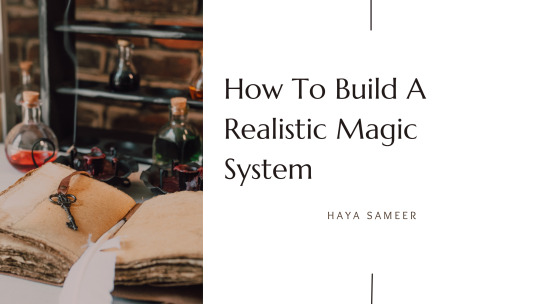
Whether you’re a five year old watching Disney movies or an adult reading fantasy books, everyone loves magic. It is the heart of fantasy and the favourite trope of many authors. A good magic system should be both visually appealing and work to enhance the mood of a story. But it can be hard to make your own realistic world of magic with so many different types of magic at our disposal.
Unsure how to build a realistic magic system? Here are six things you should consider when creating your magic world!
1. Establish A Type Of Magic
Authors and other creators have spent centuries establishing hundreds of different types of magic. There’s folklore, witches, magical creatures, demons, mythology and so much more. It’s good to create your unique brand of magic when world building, but there are basic facts you need to establish before you jump into your book.
For example, in my WIP The Traitor’s Throne magic only exists in the realm of mages, however, it can be used or stored in every living being from that realm (including trees). The reason it doesn’t exist in the other realms (or the human realm, to be specific) is that there is literally magic in the air of this realm, something that the human realm lacks.
Your readers don’t have to know all of this background information, but it’s important for you to have a clear image of your magic system before you jump into your book.
Here are some questions you should ask yourself when establishing your type of magic:
How do your characters get their magic (genetics, draw it from others, etc.)?
What does your magic look like? Can people see it? If not, why?
Do spells, curses, and charms exist? What about potions?
Can magic be stored in manmade objects? Why or why not?
Is your magic akin to a witch’s or a mage’s?
Does your magic fade with time?
Does your magic exist in animals? What about plants?
Do you need help with how to properly pace your world building facts while writing? Check out my previous blog post today!
2. Create Limitations
Nothing can exist without laws. Not even magic.
Limitations exist to make your writing seem more realistic, but they also help you create adequate boundaries and rules for your book. This can look like a set of laws followed by a society of wizards or a rule book humans need to follow when they summon and use demon magic.
Aladdin couldn’t ask the Genie to kill people or make someone fall in love with him, Harry Potter couldn’t create limitless food for him to eat during the summers, and Percy Jackson couldn’t control the water in a human’s body.
Tell us the dos and don’ts of your world. Establish boundaries. Create a fantasy world that feels like it could be real and maybe even exist alongside our world.
If you are a fantasy author writing a book about a character who accesses magic through another being (a human summoning a demon, etc.) then consider creating some limitations for the summons. Maybe the human can only summon the demon once every week, maybe they can’t ask the demon to interfere with another person’s death (bring someone back to life or kill someone).
Unsure what magical limitations to implement in your WIP? Comment down below for some personal advice!
3. The History Of Your Magic
Everything starts somewhere. Humanity didn’t exist during the big bang theory, fire didn’t exist until humans were made. Everything has a past, so what’s your magic’s history?
Did it always exist in the society your character lives in? Did someone just wake up one day with newfound powers? When was your magic founded? How do your characters know how to use magic? What timeline are they in? What does their fashion, architecture or mode of travel look like?
These might not seem like important questions right now, but you could find yourself wasting precious writing time in the future mulling over how your characters get light during the nighttime. (Lanterns? Candles? Magic balls of light?)
Do you need to create a list of all the monarchs who ruled over your world throughout the past five hundred years? Of course not! But would it be helpful to know who the first monarch was and why they possessed the power and influence needed to govern your world? Yes!
Creating a concrete history can also help you when writing dialogue for your book. Make corny history jokes or comparisons, have your character’s mother dramatically talk about how her child is like a recluse from the dark ages.
4. How Does Your Magic Affect Your World
One of the most important things to establish when creating a magic system is how it affects your world. Do mythical creatures exist because of the magic? What about another world? Or another species?
You need to create a concrete setting for your book to take place in, and establish how the living beings of your world are affected by this setting. Do the trees have black trunks in your world of demons? Do pixies exist in your world of elves?
Creating a fantasy world is only the first step, you also need to establish how this world affects the species and characters in your world.
5. Don’t Forget The Humans!
One of the reasons books like Harry Potter and Percy Jackson got so popular is because they gave us an excuse to believe magic was real. Maybe magic really exists but we’re just muggles who can’t see Hogwarts. Maybe the Greek gods were real all along but we can’t interact with them because we aren’t demigods.
Give your readers that childlike sense of hope that makes them believe in magic. Make them think they might be able to meet your characters one day, if only they discovered a door to your magic school or stumbled upon a demigod in action.
This can be easy for fantasy authors writing about a human who accidentally ends up in a fantasy world, but if you’re an author writing about non-human characters (like me) then here are some ways you can establish the presence of humans in your book:
Humans exist, but they live in another realm/world or don’t know how to access your character’s world (the gate to the underworld in PJO).
Humans can access your world, but the area your character lives in is surrounded by a natural body (an ocean, a forest, etc.) that humans always get lost in. Or maybe they forget their memories when they travel in it.
Humans don’t exist, but they did centuries ago. Your character’s species had a big war against humans and they killed them all. (Or maybe they just thought they did).
Do you need help with how to properly pace your world building facts while writing? Check out my previous blog post today!
6. Sanderson’s Laws For Magic
Still unclear on how to establish a proper magic system? Consider looking into Sanderson’s Laws for Magic.
If you’re a fantasy author you’ve probably already stumbled upon some variation of his laws during your worldbuilding research, but I would advise looking at Sanderson’s blog and reading his original rundown of what the laws are all about.
In their simplest forms, Sanderson’s laws of magic are:
Law One: An author’s ability to solve conflict with magic is DIRECTLY PROPORTIONAL to how well the reader understands said magic.
Law Two: Limitations > Powers.
Law Three: Expand what you already have before you add something new.
I hope this blog on how to build a magic system will help you in your writing journey. Be sure to comment your favourite writing tools to help your fellow authors prosper.
Want to learn more about me and my writing journey? Visit my social media pages under the handle @hayatheauthor where I post content about my wip The Traitor’s Throne and life as a teenage author.
#haya's book blog#haya blogs#writing community#writing tools#creative writing#writing advice#writing help#writing tips#writing resources#writing tips and tricks#writing motivation#author tumblr#author tips#author advice#author community#author life#amwriting#writersofinstagram#book blog#book tips#book review#writing with magic
280 notes
·
View notes
Text
Hello
Hey, if you're an author if you're a new author or if you're someone who wants to be common author? Or you want to write stories. I have a discord group where you can learn things and have fun and make friends Everyone is accepted there. We do have a few rules. Like no being mean to each other in a bullying at all. But that's pretty much it. Anyways this is the server By the way you can also join if you write poetry that counts
#Author#New author#lgbt#reading community#author life#Make friends#Author tips#writing help#writing tips and tricks#author advice
3 notes
·
View notes
Text
A Step-by-Step Guide to the Weirdest Mush of Storytelling Techniques Known to Human Beings (that works surprisingly well)
SPOILERS - basically you combine anime/manga storytelling with tumblr character obsessions.

Okie dokie human beings, let me just come out of the gate and say that I've been hyperfixated and doing obsessive researching on storytelling methods since I was ten. You hear it all when you deep dive into this:
'You need conflict to drive your story' (wrong... well, not always true. Conflict isn't required but you can use it for funsies)
'Your characters need to be flawed. Give them flaws so they aren't Mary Sues' (Wrong. Traits in and of themselves have both nice and not-so-nice aspects, depending on the situation.
Take 'loyalty' for example. Loyal people can be apologists for those they are loyal to/not be objective when they think about their friends. But they will also be there for their friends... does that mean they are a people pleaser and won't be as nice to themselves? Mary Sues are only there because they are cardboard cutouts and people aren't having fun with them. *See remakes and pointless cash grabs* When you're self-indulgent and ignore the 'don't make the characters too cool' rules, people can tell. You all will have the time of your lives.)
Then you have... the discourse. As a storyteller, reading those made me so insecure about writing characters because I was worried I would anger someone. This method won't assure avoiding all discourse, but it makes the characters more believable and fun to watch. Everyone else can avoid the story. (It isn't for them anyways)
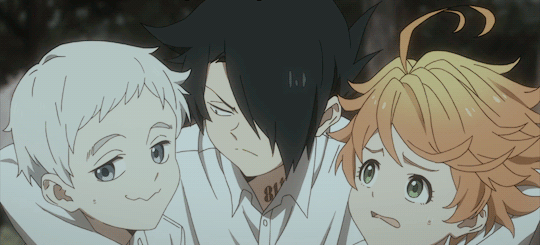
Anywhosies, after years of researching, I've finally, finally found a storytelling methodology that is structured yet insanely flexible, works for any story you're telling (watching tv will never be the same), and is pretty much the exact opposite of trashy Hollywood blockbusters.
So basically, it's: exploring a facet of existence through complex characters and an easy-to-follow plot.
So yea, I've talked in the land of general for too long. This is my modified method from the resources down below. Have fun!

Step One: Characters Concepts.
This will help you a lot when you make characters. Let's go through an existential crisis!
What concept about "how life works/philosophy/the unknown/viewpoint/question" do you want to explore?
This will be the aspect of life that the story attempts to make sense of and give the reader some new understanding or comfort about it. It will be the groundwork and foundation for your story going forward, so feel free to explore as many aspects of this topic as you wish.
Specific memories can help with this. For example, I used the memory of crying over unfinished crafting projects to write my main WIP. (I was supposed to make this doll dress with my mom and we did part of it, had a lot of fun, then never finished it. A few months later, child-me sat beside the bed and waited for my mom to come out of the bathroom so I could ask her something. In the meantime, I looked underneath the bed and found that unfinished crafting project. I started bawling.)

This memory led me to make my concept: Happiness chasing. Those who want that happy ending so bad so they can have their childhood happiness back. Mostly because they are filled with regret over all the happiness they didn't have when they were little (the 'smart and didn't like to play because they wanted to read books' children... anyone else do this? And regret how little time they spent with other people?)
The second aspect of this concept that came up was the 'avoiding being happy right now because you need to earn it for a happy future' also the 'happiness needs to be perfect... but what exactly does happiness feel like?' and the 'happiness is overrated. I'm satisfied as an observer wandering around the world'
So yea, explore a concept and see where it takes you! It's okay if it's abstract, you can refine it in the next step:

Step Two: characters
~Here we go~
Here we are picking a dynamic, an internal conflict, 'the two wolves'.
Aka: desire vs fear.
And these will be in direct opposition. The character will want something, but the fear will stop them from getting it. Because to get what they want, they have to face what they fear. They cannot exist at the same time.
This took me the longest time to figure out... mostly because no one else spelled it out for me. But it works! Very well! Probably the fastest way to create a complex character!
So you'll take an aspect of your concept. Like: 'trying to replicate the happiness you had when you were little because you are full of regret about not being happy'. Then create a duality/ warring desire and fear off of it.
(Feel free to include all the extra character trait funsies here... just don't get too carried away. That becomes overwhelming fast. We'll talk about that more in the next step)

Here's an example from my WIP:
Anuli the dryad wants to have faer happy ending that fae wanted when fae was little. (I get very specific here because I wrote backstory, feel free to write a very specific image about what a 'perfect world' would look like to the character. What will having that perfect situation mean to them?)
Anuli the dryad fears being happy. Fae thinks that by being happy, fae will make a mistake and ruin others' happy endings. Then fae will be left with nothing but regret. It's wrong for faer to be faerself. (There's a misbelief about the world here. Typically, fears are rooted in false worldviews. So, you can write an opposing viewpoint and create a 'worst case scenario' based off of that.)
Ta da! Now you have a dynamic where the character has a conflicted view of the world and themself. Perfect for angst, fluff, whatever your story needs are! (Why does this sound like an old car salesperson?)

Step three: First meeting
My major issue when writing a new character is how to translate their unique prose style and convey their internal conflict, whilst also trying to figure out plotlines.
This step is entirely my own, and has been SO EXTREMELY helpful. (I'm proud of myself.)
What you'll do is some random writing of your character's internal monologue/how they see the world. Go through your writing from the previous steps and try translating that into prose. Play around with it until you are comfortable. It does not have to be perfect, it just has to be comfortable. If you're having trouble, pick a mini-topic to write about (perhaps something that's been on your mind lately) and see how your character would react to that. Or you can change the style of writing (more parenthesis? be ridiculous? stream of coconsciousness? Third person? Poetic? Change it up until you enjoy writing this character.)
Here's an example from my writing (this is my second WIP and it's a biology fanfiction.). I'm including it all because I messed around a bit and tried different things. I ended up setting for an informal semi-stream of consciousness style (partially to offset the complexity of biology and partially because that's who Cassiah wanted to be):
(It is... long. So scroll and skim, this is a messy example.) <3


I ended up going for first person instead of third. And I always go for past tense...plus a poetic style is a bit.. much for a biology fanfiction... and I wanted Cassiah to be a nervous mess on the inside while keeping up a 'full of themself' exterior. Therefore:

Feel free to include notes for yourself! This is a great place to refine and edit the writing you did in the previous steps! You can also do some exploring about worldbuilding (I may make another post for that) and congrats! A lot of what you are writing here becomes the character's behaviors that they've gotten from their internal conflict. These are a lot more specifc (and a lot more helpful) than character traits like 'loyal'.
Okie dokie, you can always come back to this for some writing relaxation, and now we go towards everyone's favorite part:
Step four: the plot the tragic backstory:

Note that this doesn't necessarily have to be tragic. All this has to do is showcase the exact moment where the character got their internal conflict. You can do this with the desire, with the fear, or both! (Although typically you'll see the fear backstory... unless it's a Disney movie or Haikyuu)
'But wait!' You ask. 'Plotting is hard! And I need to have this backstory be perfec-'
So the method I followed had this thing where you would write one backstory scene where the fear came from, then three more backstory scenes where the character chose to follow the fear instead of the want and became more conflicted. You can do that if you wish (I'll give you a resource to help with plotting in a bit.)
What I like doing is... having fun? I rewrote my backstory scenes so much and got so stressed with it. (My main WIP has been my writing project since I was ten and I worked on it nonstop... but it JUST got a full backstory written.)
My method for writing backstory changes for each character I write. For that main WIP, I started trying to write the backstory for the backstory, and tried stopping myself from doing that. Which was a mistake. Nowadays I'll write pre-backstory for fluff, and how the fear complicates things after a twist. (Usually I get this specfic aspect of my concept that I want to explore through storytelling and I'll write a snippet about it), and my MC just gets more ridiculous every time I write faer.

All in all... you can just use the plotting method discussed in the next step for the backstory: kishotenketsu. If you do this, then I recommend that you use ki and sho for the 'want' portion. (some fluffy childhood goals if you will.). Then use ten and ketsu for the fear that complicates things and the aftermath.
But overall I recommend (for all scenes that you write) that you always connect whatever is happening to the character's internal dynamic. This is what gives weight to your story. And you've already practiced writing your character's internal monologue, so now it's time to relax, be ridiculous, write some bad stuff, and find the exact moments where the character's internal conflict came from.
I haven't gotten to this point with my biology fanfiction yet (been executive dysfunctioning until recently... the stars have aligned or smth.) but here's my initial prose-sketch:
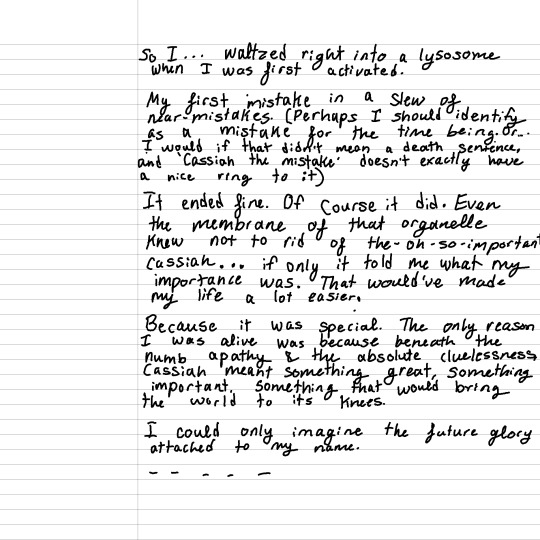
From here, I'll write a more specific backstory (I tend to get bored of long scenes though, so I imagine I'll do my 'tiny section prose snippet style') to depict how Cassiah got their fear, then I'll write a bit showcasing how they started envying others and their confidence (the desire). Afterwards it'll be Cassiah being internally conflicted hijinks until they inevitably get themself in a ton of trouble.
Okie dokie everyone... now it's time for the plot present-day character explorations.
Step Something-or-other: Keep doing what you're doing, but technically this is the start of the story.

So there's this whole 'inciting incident' and blah blah blah.
Start your story when it becomes impossible for the character to avoid their fear anymore, which causes them to chase after their desire.
...I'm going to include a video for kishotenketsu because... I've been typing... for hours.... and I'll do an overview but video.
So kishotenketsu is the overall plot structure that anime and manga uses. Very flexible, very nice. I keep it in the back of my mind when I'm writing, making sure to connect everything back to the character's internal conflict (make sure they react to things and make decisions.)
Here's a scene card to help you with 'smaller scale' plotting:

So instead of the plot part I use kishotenketsu. And usually I'll write actual prose for the character's monologue (like we did for the freewriting) for the 'why it matters'. (What is the plot causing them to think and feel like? And what do they want to do to fix things?)
'And So?' is usually a decision that effects the plot moving forward. You can also just have a change in perception. Just something new to give the scene meaning.
Whoopdedoo so I'll do a quick overview of kishotenketsu, and then I'll list my resources if you want to do any further digging. My advice in general is to make up your own methodology for writing, and figure out what works best for you.
Kishotenketsu:
Ki - introduction: introduce the characters, their world, where they are at, what matters to them, and most importantly - their internal conflict/what aspect of your concept they represent.
Sho - development: The plot develops toward the twist later. You can use the scene cards for this part, it should have some cause and effect and it should develop and explore the character's internal world.
Ten - twist: this is where an obstacle occurs. Bonus points if it relates to the fear/desire. The character now has to change their perspective and deal with the aftermath of the twist.
Ketsu: I forget what this stands for - the aftermath. How do they deal with the effects of the twist?
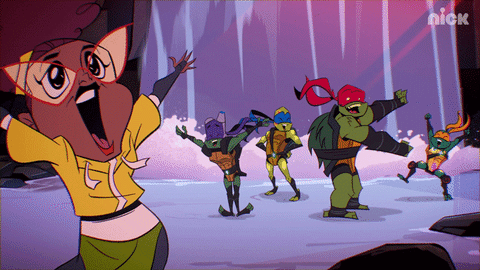


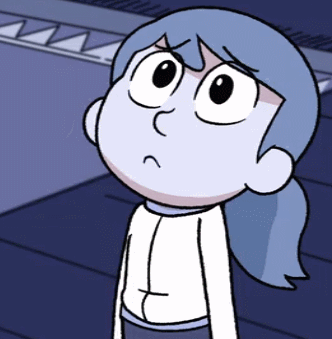
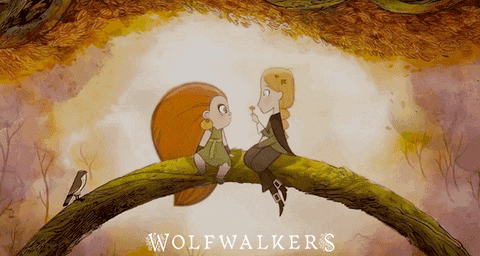
Okie dokie fellow storytellers! Now go forth! And Remember! I SPENT WAY TO LONG WRITING THIS IT"S SO LONG WTFUDSICLE ICEPOPS IS THIS LENGTH IT"S TOO LONG
Resources:
Books: Story Genius (where I got the scene card from.)
Videos on kishotenketsu: First one. Second one.
Someone rewrote twilight and it was so helpful for my writing
And... funny story... my brother got viruses on his computer and now I can't pirate anime see 'restricted videos' on youtube because of ristricted mode.
So the Hannah person that rewrote Twilight? Search for 'physic distance' Very helpful.
Also look up. 'Zoe Bee poetry.' the basics of poetry are extremely helpful.
Things you should watch (the gifs)
Rise of the Teenage mutant ninja turtles
The promised neverland
Your Name
A silent Voice
Hilda
Avatar: the last airbender
Wolfwalkers
Song of the Sea
Amphibia
The Girl from the other side
Haikyuu (how did something get me to like a sport this is insanity)
Good Omens (I can't actually watch it because homophobic parents but I've seen all the clip compilations.)
#writeblr#writers of tumblr#writers on tumblr#writerscommunity#writing resources#writing advice#writing#on writing#author tips#author things#author talks#storytelling tips#narrative#original story#stories#long post#for reference#writing community#writer stuff#creative writing#advice#writing help#writing characters#writer tips#writing tips#authors of tumblr#book writing#author#fiction#writer
56 notes
·
View notes
Text
Crafting Literary Masterpieces: Unraveling the Significance of Writing Style in Your Book
In the vast realm of literature, where storytelling reigns supreme, the importance of a perfect writing style cannot be overstated. Aspiring authors often grapple with the question: How much does writing style truly matter for your book? In this exploration, we will delve into the significance of a refined writing style and how it can elevate your work from good to unforgettable.

1. The Art of the Perfect Writing Style:
Picture a painting, each stroke deliberate and purposeful, creating a masterpiece that captivates the beholder. Similarly, a perfect writing style weaves words together in a way that transcends mere communication; it becomes an art form that enriches the reader's experience. Crafting sentences with precision, choosing the right tone, and molding a distinctive voice contribute to the creation of a narrative that is not just a story but an immersive journey.
2. The Power to Immerse and Engage:
Your writing style is the vessel through which your narrative flows into the minds of your readers. A compelling writing style has the power to immerse readers in the world you've crafted, making them feel a part of the story rather than mere spectators. Descriptive prose, evocative language, and a careful choice of words enhance the overall reading experience, drawing readers deeper into the narrative tapestry.
3. The Impact on Reader Connection:
Improve your writing style, and you inevitably enhance your ability to connect with your readers on a profound level. A well-crafted style allows you to convey emotions with authenticity, creating characters that resonate and plots that linger in the minds of your audience. As readers connect with your writing style, they form a bond with your work, ensuring a lasting impact that extends beyond the final page.
4. Writing Communities: A Crucible for Style Refinement:
The journey to a perfect writing style doesn't have to be a solitary one. Engaging with writing communities provides a unique opportunity for writers to receive constructive feedback, exchange ideas, and refine their styles. Whether it's through workshops, online forums, or local writing groups, the diverse perspectives within a writing community can offer valuable insights that contribute to the evolution of your writing style.
5. Expressing Individuality Through Style:
Your writing style is a fingerprint, a distinctive mark that sets your work apart. It's not just about adhering to grammatical rules; it's about expressing your individuality as an author. Embrace your unique voice, experiment with different styles, and allow your personality to shine through your words. A perfect writing style is one that aligns with your authentic self, resonating with readers who appreciate the genuine artistry behind the words.
6. Evolving Your Style: A Writer's Journey:
Writing style is not static; it's a dynamic entity that evolves over time. Successful authors understand the importance of continuous improvement. Reflect on your work, seek feedback, and be open to experimentation. As you grow and evolve, so too will your writing style, ensuring that each subsequent project is a testament to your development as an artist.
Conclusion:
In the grand tapestry of literature, the significance of a perfect writing style cannot be overstated. It is the brushstroke that defines the tone, the rhythm that guides the narrative dance. Aspiring authors, take heed—improve your writing style, nurture it, and let it become the vehicle through which your literary vision comes to life. Engage with writing communities, embrace feedback, and allow your unique voice to resonate. In doing so, you embark on a journey not only to write stories but to craft timeless works of art that leave an indelible mark on the hearts and minds of your readers.
23 notes
·
View notes